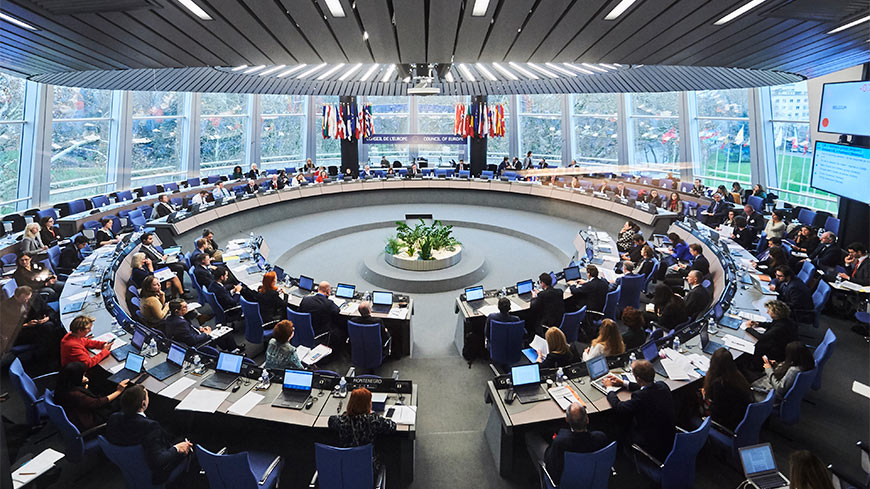Measures adopted in 2023 by the Committee of Ministers of the Council of Europe on the implementation of ECtHR judgments against Italy

Table of Contents
- Cestaro v. Italy group (Application No. 6884/11)
- Talpis v. Italy group (Application No. 41237/14)
- Sy (Application No. 11791/20) and Citraro and Molino (Application No. 50988/13) v. Italy
- Marcello Viola v. Italy (No. 2) (Application No. 77633/16)
Cestaro v. Italy group (Application No. 6884/11). 1483rd meeting (5-7 December 2023) (DH) H46-18
This group of cases concerned allegations of ill-treatment and subsequent state negligence to investigate facts that occurred at the G8 summit held in Genoa in 2001. The Court found Italy was in breach of Article 3 ECHR for acts committed by the security forces and the lack of adopting effective preventive and punitive measures. In the 5-7 December 2023 meeting, the Committee of Ministers noted the lack of reference by the Italian authorities to the Committee’s request advanced in 2019 to provide information about the possibility of carrying out new criminal investigations and disciplinary proceedings. Additionally, it noted with concern some legislative initiatives aimed at repealing the provisions of the Criminal Code on the crime of torture introduced in 2017, also in execution of the Cestaro judgment. The Committee reminds Italy of its obligation to put in place legal mechanisms capable of imposing appropriate penalties on perpetrators of acts of torture, and that a clear message should be passed of zero tolerance of ill-treatment of persons in custody.
Talpis v. Italy group (Application No. 41237/14). 1475th meeting (19-21 September 2023) (DH) H46-19
This group of cases concerns violations of Articles 2 and 3 of the Convention, mainly negligence and inadequate handling of complaints of domestic violence. The court noted irregularities that could delay proceedings, affecting the statute of limitations for such crimes, and violations of Article 8 of the Convention due to the secondary victimisation of the applicant.
The Committee’s relevant resolution asked the authorities to promptly conclude criminal proceedings against the complainants' aggressors. The Committee welcomes the measures taken by Italy on combating domestic violence and gender discrimination, and the country's continued commitment to implementing countermeasures on the issue.
Sy (Application No. 11791/20) and Citraro and Molino (Application No. 50988/13) v. Italy. 1468th meeting (5-7 June 2023) (DH) H46-14
These cases concern the Italian state's failure to fulfil its obligations to take care of imprisoned citizens with psychiatric conditions. SY case, alleges violation of Articles 3 (prohibition of ill treatment), 5.1 and 5.2 (rights to freedom and security), 6.1 (right to a fair trial) and 34 (right to individual application) ECHR. The case of Citaro and Molino, on the other hand, concerned the authorities' failure to protect the applicants' son, who committed suicide in prison.
The committee of ministers took note of the reimprisonment of Sy, now fully supported, and the state's improvement in the number of those awaiting a transfer to REMS (psychiatric facilities for the enforcement of security measures). No further individual measures are possible in the Citraro and Molino case. The Committee is concerned about the increased number of suicides in prison occurred in 2022; nevertheless, it notes with interest the adoption in 2017 of a comprehensive national action plan for the prevention of suicide and self-harm in prison and urged the rapid implementation of the relevant guidelines.
Marcello Viola v. Italy (No. 2) (Application No. 77633/16). 1459th meeting (7-9 March 2023) (DH) HR46-13
This case concerned a violation of Article 3 of the Convention due to the irreducibility of the life sentence imposed on the applicant for membership in a mafia-like criminal organisation. The European Court held that the irrebuttable presumption of being a dangerous individual not subject to parole, simply by failing to cooperate with the judicial authorities, enshrined in national law, is disproportionate. Therefore, the authorities should correct this structural problem.
The Committee of Ministers noted with satisfaction the legislative reform of Article 4, lett. a) of the Prison Administration Law, which introduced the possibility of conditional release for prisoners who do not cooperate with the justice system, thus fulfilling the Committee's recommendations. Additionally, they expressed confidence that domestic courts will be guided in their interpretation and application of the new legislative provisions by the requirements of the Convention and the ECtHR’s case law in this area.

